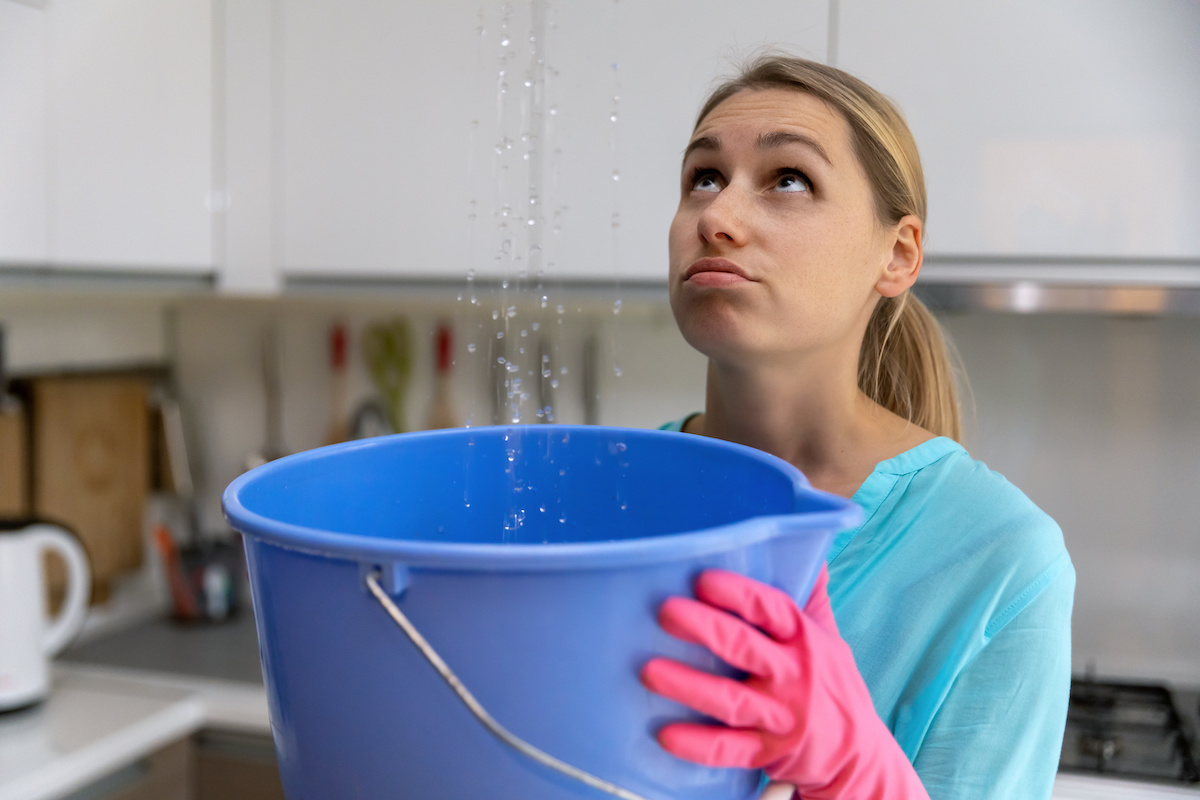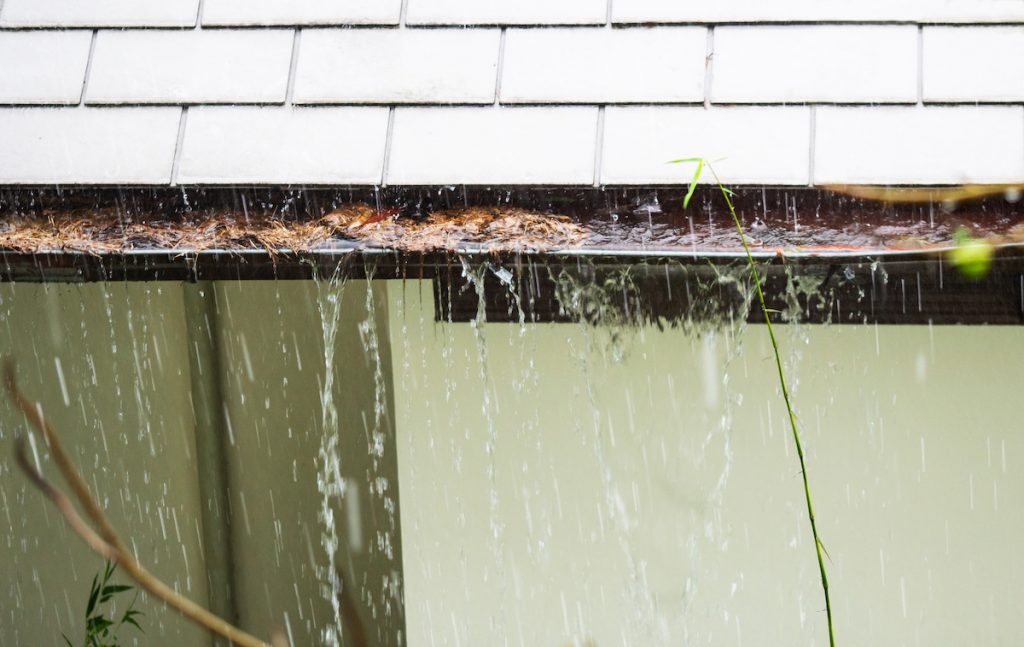Exploring the Main Factors for Water Leaks in The Home
Exploring the Main Factors for Water Leaks in The Home
Blog Article
Just how do you actually feel when it comes to How to Find Water Leaks?

Leaks not only create waste of water yet can additionally trigger unnecessary damages to your home and advertise unwanted natural development. By understanding and looking for everyday circumstances that cause leakages, you can secure your home from future leakages as well as unnecessary damages.
Immediate temperature level modifications.
Severe temperature adjustments in our pipes can cause them to increase as well as contract unexpectedly. This growth as well as tightening might trigger cracks in the pipes, specifically if the temperature level are below freezing. It would be best if you kept an eye on just how your plumbing works. The existence of the previously pointed out circumstances often shows a high risk.
Corroded water supply
This could be the reason of staining or bending on your water pipelines. If our plumbing system is old, consider changing the pipelines because they are at a greater danger of corrosion than the more recent designs.
Faulty Pipeline Joints
The point at which your pipelines connect is frequently the weakest web link in the waterline. Pipeline joints can weaken gradually, resulting in water leakages. The bulk of pipeline joints are not quickly noticeable. If you have loud pipelines that make ticking or banging sounds, particularly when the warm water is activated, your pipeline joints are most likely under a lot of pressure. It is a good idea to have your plumber check your system yearly.
Trespassing origins
The majority of water leaks start outside your house instead of inside it. If you discover an unexpected decline in water pressure, say in your tap, take some time to head out and also examine your lawn. You might notice wet patches or sinkholes in your yard, which may imply that tree origins are invading water lines causing water to seep out. You can have your plumber look for invasion, particularly if you have trees or hedges near your property.
Poor Water Connectors
At times, a leakage can be brought on by loosened hose pipes and also pipes that provide your appliances. Generally, shifting is what creates the loose water Links. You might find when it comes to a washing equipment, a hose pipe might spring a leak because of shaking throughout the spin cycle. In case of a water links leakage, you may notice water running directly from the supply line or puddles around your home appliances.
Clogged Drains
Blocked drains may be annoying as well as inconveniencing, but they can often end up causing an overflow resulting in break pipes. Maintain removing any type of products that may decrease your drains pipes that might clog them to prevent such aggravations.
All the above are root causes of leaks but not all water leaks arise from plumbing leakages; some leakages might originate from roof leaks. All leaks must be fixed instantly to avoid water damage.
Leakages not just create waste of water however can likewise create unneeded damage to your home as well as advertise undesirable natural development. By understanding and looking for daily scenarios that create leakages, you can protect your home from future leaks and also unnecessary damage. Today, we will look at 6 leakage causes that may be triggering your pipes to trickle.
At times, a leak can be created by loosened pipes and also pipelines that provide your appliances. In situation of a water connections leak, you may observe water running straight from the supply line or pools around your home appliances.
Tell-Tale Signs of a Water Leak
The Sound of Running Water
If you’re hearing water running, your first step should be to check your faucets, toilet valves, and outdoor spigots. If everything if status quo, take an exact reading of your water meter and don’t use the water for a few hours. Then, take another meter reading. If there has been no change, that means water is not running (and maybe it’s time to have your hearing checked!). If the reading has changed, however, this indicates that water is indeed flowing and you most likely have a leak.
Wet or Damp Floors
You’re walking across your carpet and suddenly squish—your sock is soaked! The dog doesn’t look guilty and your child swears they didn’t spill anything. That means you’re likely looking at sewer leakage. Now, it’s easy to just soak it up with a towel and call it a day; however, this won’t stop the leak. Ignoring the problem allows moisture to build up, ultimately causing mold or mildew. Not only is this smelly, it can be very toxic and harmful to children, the elderly, pets, and those with weak immune systems. Don’t risk the health of your home and your family—call in a professional to take care of the problem.
Foul Odors
If there’s an unpleasant smell in your home and you can’t locate the source, don’t just light a candle or spray some Febreze. Funky smells are often due to mold and mildew, which spread fast under ideal conditions (optimal temperature and level of humidity). Growth begins within about 24-48 hours, and spores start to colonize in 3-12 days, becoming visible to the eye within about 18 days. If you think the odor is leak-related, get a plumber out as soon as possible to mitigate damage from rapid fungi growth (and rid your home of the foul odor).
Overgrowth in the Lawn
Unless you didn’t fertilize your lawn evenly, a lush patch of grass in a select area of your lawn, or concentrated wet spots, indicate pipe leakage which is acting as a fertilizer. Left untreated, hazardous bacteria in the underground waste will quickly turn into a messy situation, going from lush growth to lawn destruction.
Wall Cracks
Over time, even the littlest of leaks can cause cracks in the foundation of your home and compromise the entire structure. How does it happen? The leak continues hammering away at the same spot in the ground beneath your home, eventually causing it to shift slightly. Now, you’d never feel this shift, but your walls will. This can be a very dangerous situation, so if you’re seeing vertical or diagonal cracking in your walls it’s best to call a plumber right away.
https://www.expresssewer.com/blog/6-telltale-signs-of-a-water-leak-in-your-home

Do you appreciate reading up on Common Water Leaks In House? Give a remark down the page. We will be delighted to see your responses about this posting. We are looking forward that you come back again in the future. Do you know someone else who is inquisitive about the subject? Be sure share it. Thank you for your time invested reading it.
Plumbing woes? We help. Report this page